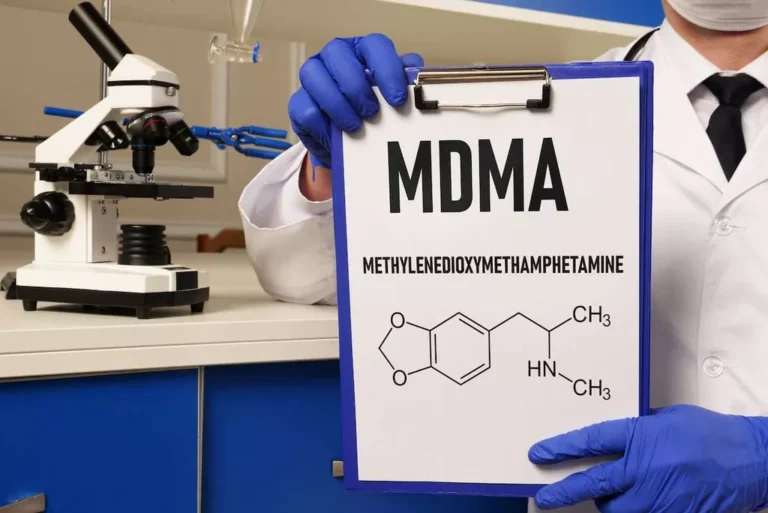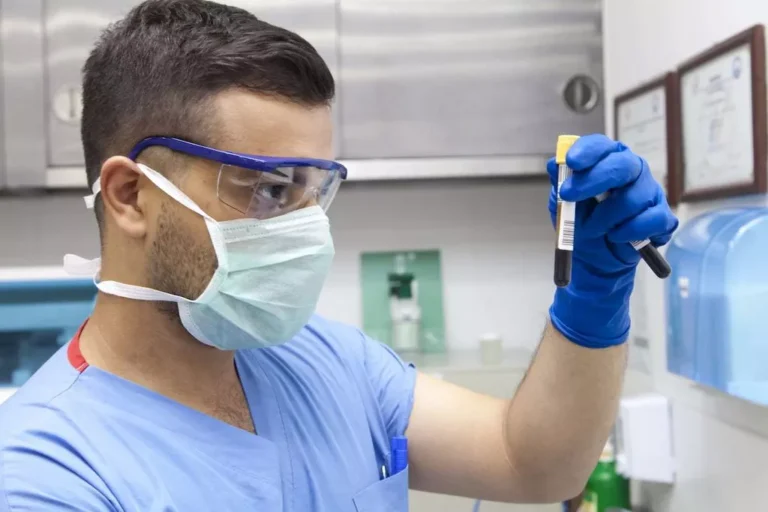Exploring How Long Does MDMA Stay in Your System and Addiction Treatment

Ecstasy is a generic term for a drug with any number of chemicals from the amphetamine class. They include MDMA, which activates the central nervous system. However, MDMA is frequently supplemented with other ingredients added to the pills, such as caffeine, amphetamine, barbiturates, ketamine, and LSD.
MDMA is a synthetic substance that produces psychoactive effects by acting as a psychostimulant and hallucinogen. When someone opts for it, even for recreational use, he has an energy surge, his mood lifts, and bliss sets in. In our article, we’ll explore the key details and delve into the nuances of how long does MDMA stay in your system.
MDMA: Discovering What Is It
MDMA is a psychoactive semisynthetic drug, and it belongs to the amphetamine class. Sometimes, it’s referred to as ecstasy. It’s a commonly used drug, enjoying popularity on par with cocaine and marijuana. The medication has an adverse influence on the mind and all internal organs. The concern with MDMA is that it could lead to addiction to stronger and more dangerous substances.
MDMA’s effects kick in around 20 minutes and can endure up to several hours. Ecstasy diminishes the body’s natural signals of overheating or fatigue. Some individuals enhance the drug’s impact by combining it with cocaine, LSD, or caffeine. It makes individuals more prone to engage in reckless and dangerous actions.
Individuals may encounter various physical, cognitive, and behavioral effects, encompassing:
- A state of euphoria;
- Feeling energized and self-assured;
- Pupils dilated;
- Jaw clenching and grinding of teeth;
- Senses heightened (sight, hearing, and touch);
- Excessive sweating and tingling skin;
- Muscle aches and pains;
- Rapid heartbeat.
When under the influence of MDMA, people experience distortions in their sense of time and the environment. They feel an increase in empathy, sexuality, and happiness. However, no one who uses MDMA has a positive experience. Even those who do, often endure harmful side effects in addition to the intended results.
Similar to amphetamine-related side effects, ecstasy can include cognitive impairment. People risk overdosing, harming themselves or others, having anxiety, headaches, sleeplessness, and nausea. Multicomponent ecstasy is especially dangerous since the pills may have different ratios of contaminants and narcotics responding in various ways.

Take back control of your life and start on the road to recovery now.
How Long Does MDMA Stay in Your System?
The substance can linger in the body long, especially with frequent use. It’s influenced by various factors such as age, weight, dosage, and metabolism. Younger individuals generally experience a faster elimination process, and those with lower body weight tend to expel the substance more rapidly.
Urine
The drinking pattern is a significant aspect. The volume of filtered liquid grows, and the drug’s cleaning process accelerates when an addict drinks a lot of liquids, especially water and other beverages. Urine analysis usually shows MDMA 2–5 days after recent consumption.
Blood
Following consumption, the highest concentration is attained approximately two to three hours later. And then the kidneys take it out piece by piece. Nine to fifteen hours following the previous dosage is often when intermediate breakdown products become detectable in the blood. According to certain reports, MDMA metabolite traces might occasionally last up to 20-25 hours. Factors such as water consumption, health status, dose, and frequency of usage can all affect how long this lasts.

Saliva
Saliva contains MDMA only for 1-2 days. The limited detection window of these tests makes them useful in detecting recent use. Similar to blood tests, they are useful when prompt or short-term detection is required.
Hair
Hair follicle testing may reveal MDMA traces for as long as three months. It offers a thorough synopsis of a person’s long-term use. The precision of drug tests varies among individuals.
How Is Addiction Formed?
It’s crucial to remember, ecstasy addiction develops more slowly than that of heavy narcotics. Psychological dependency is most often the result of long-term usage.
Furthermore, the habit makes it impossible for individuals to quit using tablets to lift their spirits and boost their confidence. If addiction to pure MDMA is uncommon, it happens far more frequently with ecstasy, which has a distinct chemical makeup. The drug’s risk is that, after the initial usage, its effects wear off. The person is compelled to keep taking more of it, which frequently results in an overdose.
In an attempt to avoid the adverse effects, users start abusing more complex substances. They include heroin, morphine, methamphetamine, amphetamine, and mephedrone. The behavioral addiction signs encompass high-energy actions, prolonged wakefulness, and irregular sleep patterns. On a physical level, symptoms include dehydration, elevated body temperature, nausea, blurred vision, pupil dilation, teeth clenching, and weight loss.
MDMA Overdose and Its Dangers
A high MDMA dosage induces pulmonary edema, kidney and liver failure, anaphylactic shock, and cardiac arrest, while an overdose leads to a coma. The lethal dose of MDMA varies from person to person. As low as 10 milligrams per kilogram might be the case.
This drug has grave implications on the body when taken consistently. Long-term usage results in the death of brain cells, the central nervous system, and severe depression with suicidal thoughts. Consequently, MDMA therapy needs to start right away because waiting might endanger the addict’s life.
What Is the MDMA Addiction Treatment?
People should not only understand how long does MDMA stay in your system, but know that this addiction might be lethal if left untreated. You may finish the entire process — from detoxification to rehabilitation — and break free from addiction in a professional rehab. Complete remission is the main objective of treatment. A holistic approach involving both medication and cognitive therapy, effectively completes this goal:
- In inpatient recovery programs, hospitalization becomes necessary, especially when dealing with severe overdose or withdrawal symptoms. The complete detoxification can take anywhere from a few days to several weeks.
- Engaging in psychotherapy, especially CBT, has shown beneficial results in addressing addiction. A therapist assists individuals in reintegrating into their everyday routines. He explores the underlying reasons of substance misuse. Moreover, it fosters the rebuilding of relationships with loved ones.
- The treatment objectives aim to alleviate stress and prevent relapses. Patients are encouraged to develop effective coping strategies to manage situations triggering substance abuse. It creates a sober path toward lasting recovery.
Embracing a healthy lifestyle, engaging in sports, and refraining from the usage of psychoactive substances are additional pieces of general advice.

This can be a difficult journey, but you don’t have to go it alone. Let us be your guide and provide you the environment needed to regain control of your life and begin the path to recovery.
Eco Sober Houses Are Here to Help
To fully overcome addiction, people used to abusing substances need to address the psycho-emotional implicit roots of the problem. It requires a significant shift in their mentalities and actions. It calls for the courage to break away from their old social networks. Starting anew requires constant support, and the Eco Sober House community is crucial in offering this help.
Eco Sober Houses provide clients with the conditions they need to succeed in their reintegration into society. It starts with cozy lodgings giving you a feeling of home. Here, clients form enduring relationships which deepen as they join a true community and a peer group. Eco Sober Houses place a high priority on creating a controlled, hygienic, and safe living environment. House managers make sure all of our clients follow the house rules. We understand how difficult it may be to stay sober. Therefore, we’re committed to doing all in our power to make your path easier.
Our main goal is to create a welcoming environment where everyone feels appreciated and understood. We support clients on their journey to recovery and establish a balance between kindness and discipline. Our housing program strongly focuses on collaboration and respect. If you’re ready to break free from your old habits and continue your sober journey, our houses offer you a supporting hand and welcome you.




